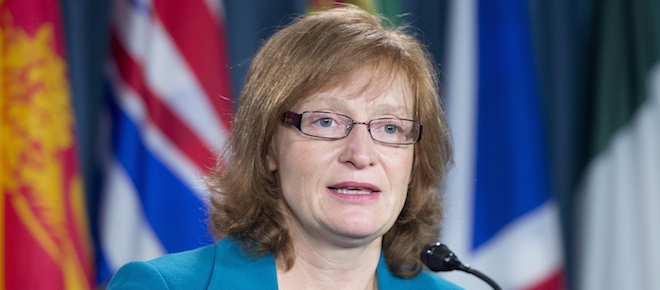Information Commissioner to investigate muzzled federal scientists: report
Information Commissioner Suzanne Legault will launch an investigation into concerns that federal scientists were not able to speak publicly about their research, says a report in the Toronto Star.
Information Commissioner of Canada Suzanne Legault responds to a question during a news conference after the tabling in Parliament of the special report, Report Cards 2011-2012, Thursday December 6, 2012 in Ottawa. THE CANADIAN PRESS/Adrian Wyld
Share

Information Commissioner Suzanne Legault will launch an investigation into concerns that federal scientists were not able to speak publicly about their research, says a report in the Toronto Star.
The reported investigation comes after a highly publicized incident in 2011, when the federal government did not allow researcher Kristi Miller to speak to media after her important research on the collapse of B.C. salmon stocks was published in the journal Science. At the time, government officials said Miller was not able to speak because she was scheduled to testify at a federal inquiry. Miller later told that inquiry that her deputy minister gave her permission to speak to media, suggesting that it was the Privy Council Office that made the final decision to silence her.
The investigation is the result of a request that both the University of Victoria Environmental Law Centre and Democracy Watch made in February. The request included a report from law student Clayton Greenwood, who cited multiple examples of incidents where federal researchers were barred from speaking to the media about their work when their research broached potentially political topics, including climate change and the Alberta oilsands.
The investigation will reportedly include as many as six federal departments: Environment Canada, the Department of Fisheries and Oceans, Natural Resources Canada, the National Research Council, the Canadian Food Inspection Agency and the Treasury Board Secretariat.